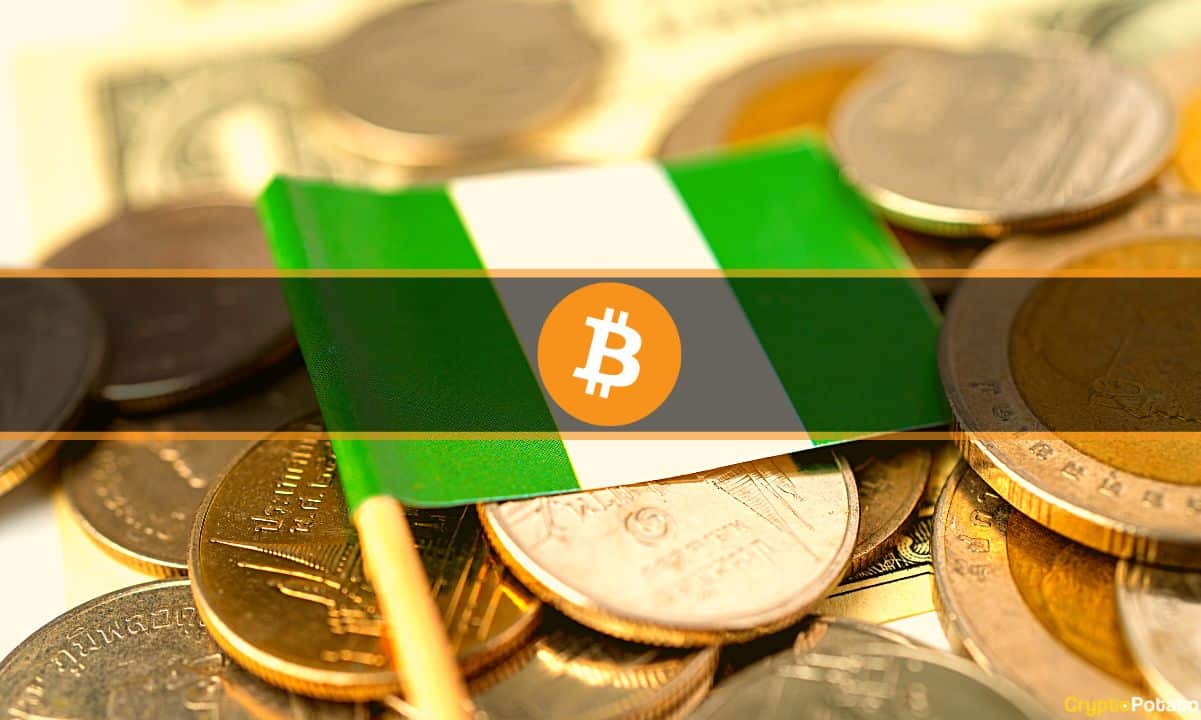[ad_1]

The cash withdrawal restrictions imposed by the Central Bank of Nigeria (CBN) have made a strong case for Bitcoin as a solid store of value and a censorship-resistant currency.
Nigeria is currently facing a shortage of physical cash after the CBN redesigned its banknotes, causing the old bills of the local naira currency to become useless. The policy prompted citizens to flood banks and ATMs to swap their old bills for new ones.
Nigeria Limits Cash Withdrawals
With the redesign came a weekly cash withdrawal limit of 500,000 naira for individuals (around $1,087) and 5,000,000 naira (around $10,087) for organizations as of January 9. Despite the restrictions, Nigerians still find it difficult to lay their hands on the new notes as most banks and ATMs do not have the cash to dispense.
To make matters worse, Point of Sale (POS) transactions and fees, according to a report by The Guardian, have skyrocketed. Nigerians are forced to pay 2,000 to 3,000 naira ($4.3 to $6.5) for every 10,000 naira ($22) cash withdrawal via POS.
Riots in Nigeria Over Cash Scarcity
The CBN maintains that the policy aims to push Nigeria, which is still heavily cash dependent, to a digital-cash economy, boosting the adoption of its CBDC, the e-Naira, while also reducing the proliferation of counterfeit cash in the country.
However, the move appears to have flopped, leaving countless citizens injured and a few dead in its wake.
The cash scarcity has disrupted businesses and fueled violent protests across the country. According to The Guardian, angry protesters have stormed the streets, attacking bank offices and ATMs while blocking roads leading to the banks.
Bitcoin Fixes This?
One of the many attractive attributes of Bitcoin is that it is censorship-resistant. This means it is not tied to a central authority, making it impossible for any government to control it.
Adopting Bitcoin in Nigeria will offer citizens 24/7 instantaneous access to their funds at affordable charges. Since the transactions are peer-to-peer and decentralized, they cannot be stopped.
Additionally, Bitcoin also aims to solve the problem of inflation. With the naira scarcity, inflation rates in Nigeria are also skyrocketing, currently at over 21% in just the last month. Bitcoin’s status as a store of value and hedge against inflation could protect holders from the impact of rising inflation in Nigeria.
The upside of holding BTC amid the current situation in Nigeria is becoming more evident as demand for the digital asset is reaching new highs. The Bitcoin Premium in Nigeria recently rose by 60% to $38,000 per BTC.
Binance Free $100 (Exclusive): Use this link to register and receive $100 free and 10% off fees on Binance Futures first month (terms).
PrimeXBT Special Offer: Use this link to register & enter POTATO50 code to receive up to $7,000 on your deposits.
[ad_2]
Source link
